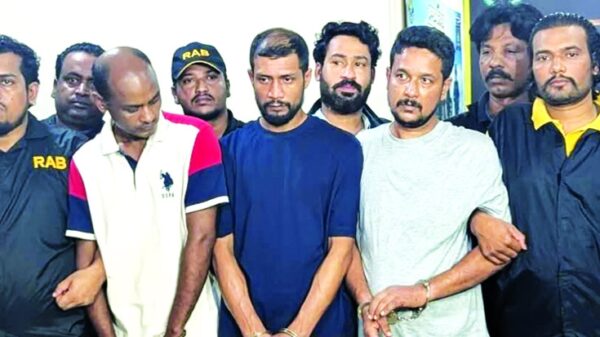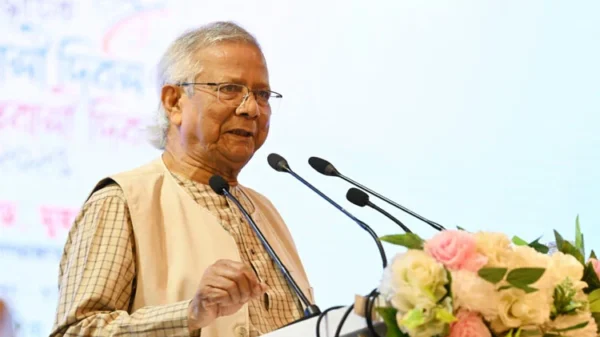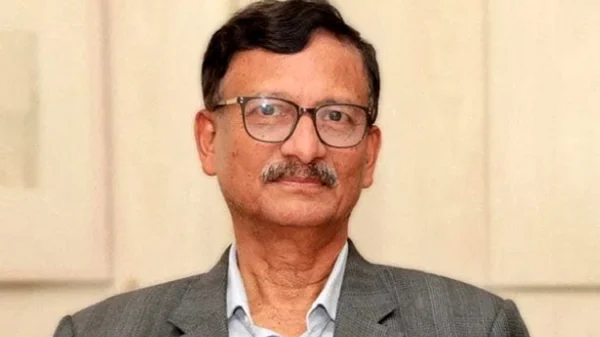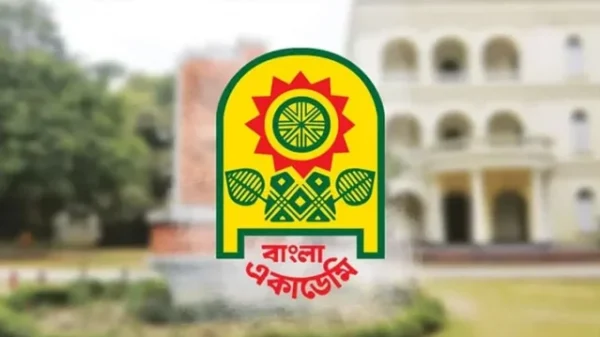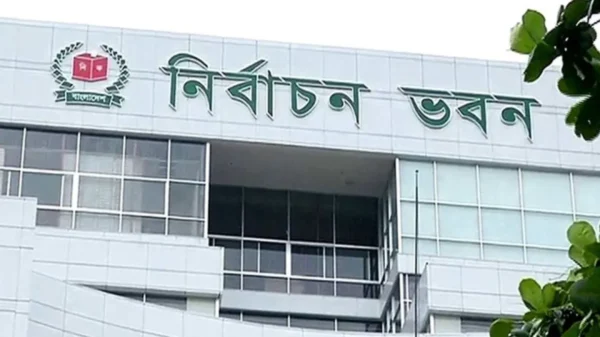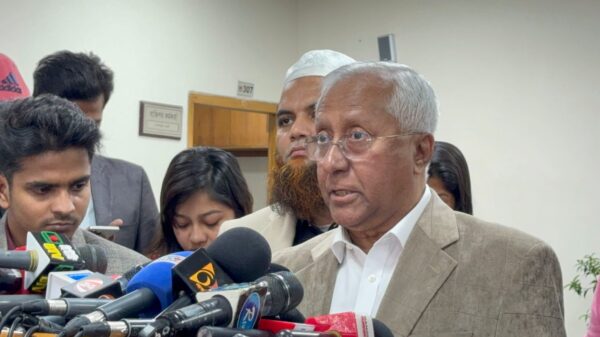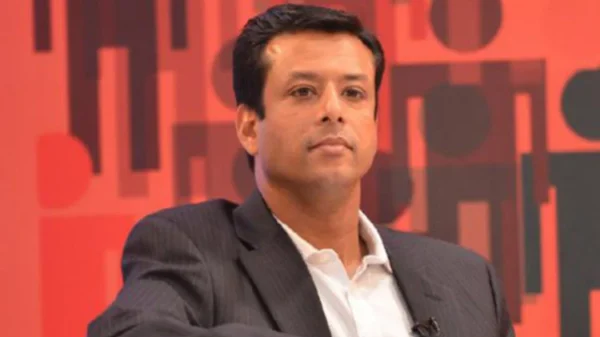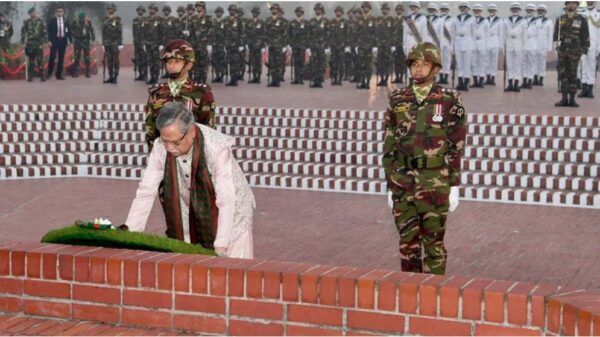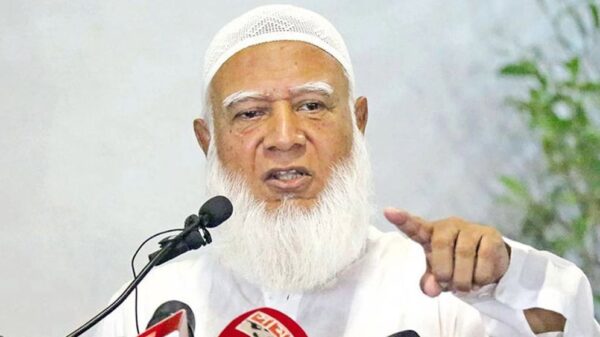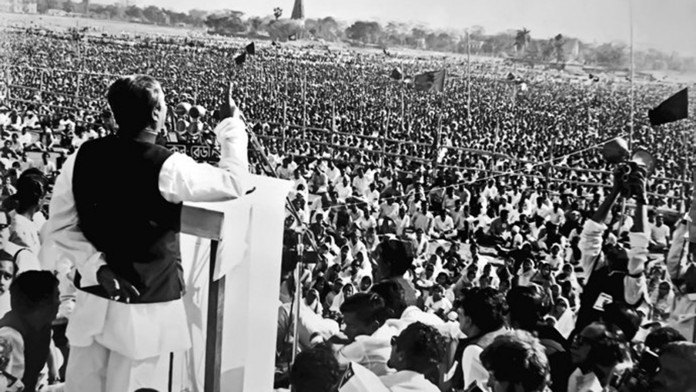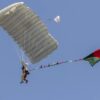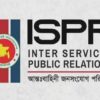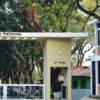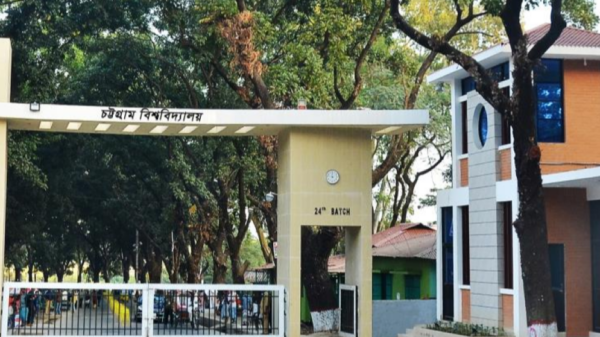Staff Reporter:
Prime Minister Sheikh Hasina yesterday said that the ‘Joy Bangla’ slogan and Father of the Nation Bangabandhu Sheikh Mujibur Rahman’s speech on 7 March is inspiring the Bangalees to proceed with their heads high on the world stage.
“As a result of the initiatives taken by our government, Bangladesh has been recognized as a role model for development in the world yesterday. We have established Digital Bangladesh. In 2041, we will transform the country into a ‘Smart Bangladesh.’ I believe the ‘Joi Bangla’ slogan and Fa-ther of the Nation Sheikh Mujibur Rahman’s speech on 7 March will inspire the Bengalis to pro-ceed with their heads high on the world stage,” she said in a message issued yesterday on the occa-sion of the historic March 7 speech of Bangabandhu.
She said the 7th March is an unforgettable day for the Bengali nation.
“Our great leader, Father of the Nation Bangabandhu Sheikh Mujibur Rahman, crafted an extem-pore epic in his invigorated speech on 7 March 1971 at the historic Race Course Ground, now Sha-heed Suhrawardy Udyan,” she added.
On this occasion, the Premier remembered with most profound respect the greatest Bengali of all time, the Father of the Nation, Bangabandhu Sheikh Mujibur Rahman.
“We gratefully recall the four national leaders, 3 million martyrs in the great liberation war, 2 hun-dred thousand mothers and sisters, and countless brave freedom fighters- at the cost of whose su-preme sacrifices we achieved independent sovereign Bangladesh,” she said.
She said Bangabandhu Sheikh Mujib and Bangladesh are inseparable, like beads in a string.
He fought against the Pakistanis for 24 years, endured prison-tyranny-torture and led all the movements to protect the just rights of the people of East Bengal and to establish an independent land for them on the world map, she added.
For thousands of years, he was the boldest voice among the exploited and deprived Bengalis, she said.
Under Bangabandhu Sheikh Mujib’s leadership, the Awami League won an absolute majority in the 1970 elections, she said, adding that however, the Pakistanis did not hand over the responsibil-ity of running the country to the Awami League and started pouring various disputes.
Bangabandhu Sheikh Mujib called for a non-cooperation movement against the Pakistani rulers with all the people of Bangladesh, she said.
“In his 7 March speech, he uttered our most cherished word, ‘Freedom,’ and guided the path of lib-eration through struggle,” she added.
He spelled out the inevitable victory of the brave Bengalis in the last two words of his speech- ‘Joy Bangla’, she mentioned.
She said Bangabandhu Sheikh Mujib, the legendary Poet of Politics, handed over the country’s governance to the people through this speech.
He also explained how power could be allocated for the welfare of all, instructed defensive or pre-ventive warfare, and guided wartime government and economy in transition, she said.
That thunder in his voice reached the hearts of 7 crore Bengalis instantly, she added.
A British newspaper compared Bangabandhu’s residence to 10 Downing Street in London, she said, adding that even the Bengali chefs at the President’s residence in Dhaka stopped cooking for Yahya Khan after listening to the 7 March speech.
Till 25 March, all the people in the country ignored Yahya’s rule and obeyed Sheikh Mujib’s orders precisely as he said, she stated.
Bangabandhu was arrested by Pakistani authorities that night, the premier said, adding that he formally announced the Declaration of Independence before he was arrested.
The irresistible people of Bengal took up arms, she said, adding that they fought for nine months, defeated the Pakistanis on every front in the territory of Bangladesh, and confirmed victory in the war of independence on 16 December.
The first President of Bangladesh, Bangabandhu Sheikh Mujib, was freed from captivity in Paki-stan, returned to the country on 10 January 1972, and devoted himself to rebuilding an independ-ent Bangladesh according to his dream, she said.
He transformed the war-torn country into a Least Developed Country in just three and a half years, she added.
Unfortunately, on 15 August 1975, the allies of the defeated enemies of 1971 avenged their defeat by killing the Father of the Nation, Bangabandhu Sheikh Mujibur Rahman, and his family mem-bers, she said.
She said they banned the 7 March speech and the ‘Joy Bangla’ slogan and tried to erase Mujib’s name from history.
“After the Awami League assumed power in 1996, we repealed the indemnity ordinance brought by the murderer Mostak-Zia and started the trial of the killers of the Father of the Nation. Later, we formed the government four times in a row from 2009 and dedicated ourselves to the country’s overall development following the ideals of the Father of the Nation,” she said.
“We established the rule of law in the country through the execution of the verdict of the murder of the Father of the nation. As a result, the nation was freed from shame,” she said.
“We enacted the Constitution (Fifteenth Amendment) Act, 2011, to include the historic 7th March speech in the Fifth Schedule of Article 150(2) of the Constitution. In 2013, this speech was in-cluded as one of the best wartime speeches of 2500 years published by Jacob F. Field in the book ‘We Shall Fight on the Beaches: The Speeches That Inspired History’,” she said.
On 30 October 2017, UNESCO recognized the speech as part of the ‘World’s Documentary Herit-age’, she said.
Not only that, UNESCO commented that the Father of the Nation eventually declared the inde-pendence of Bangladesh through this speech, she said.
“Global recognition of the historic 7 March speech of the Father of the Nation yesterday is a rare honor and a memorial of glory for the Bengali nation. Based on the verdict of our High Court, the Cabinet Division issued a notification declaring ‘Joy Bangla’ as the national slogan,” the premier said.


